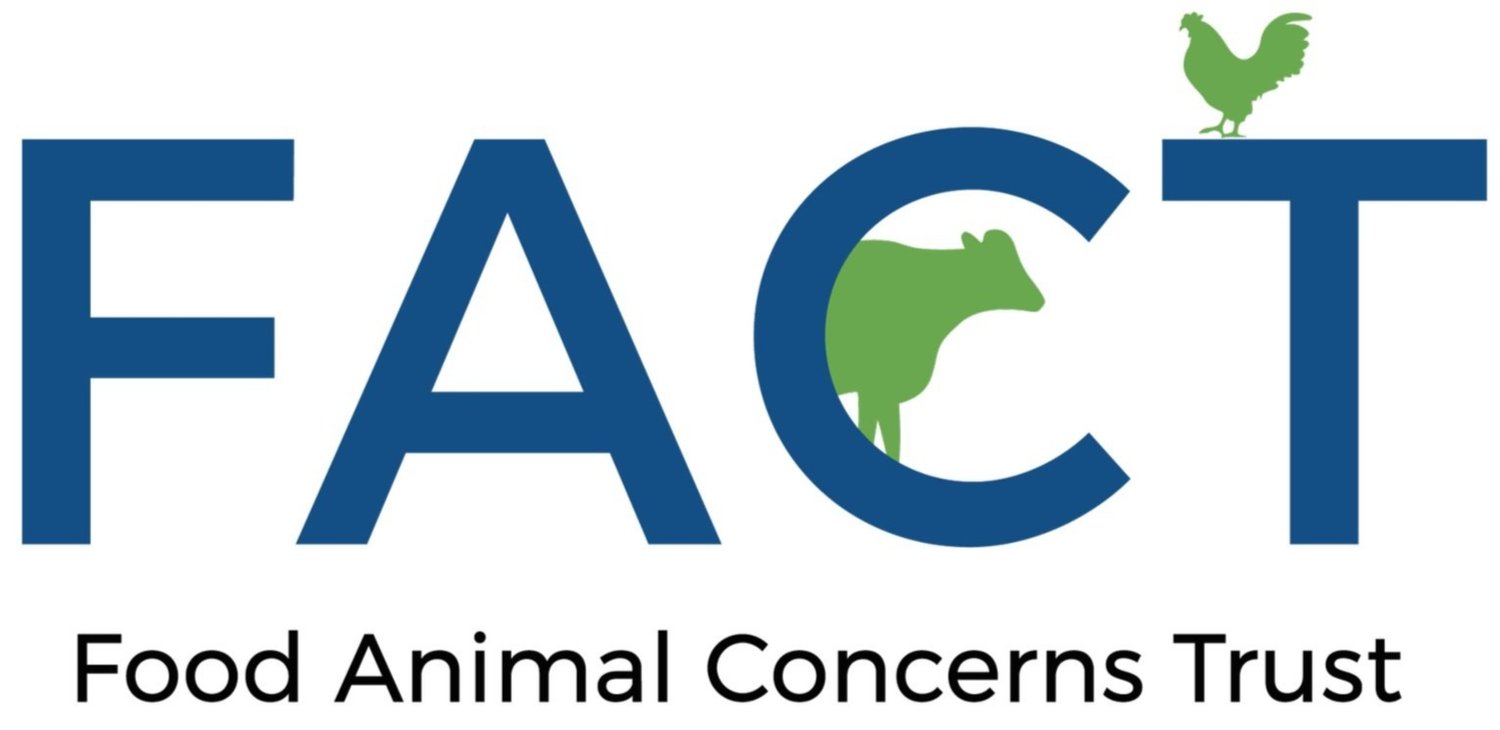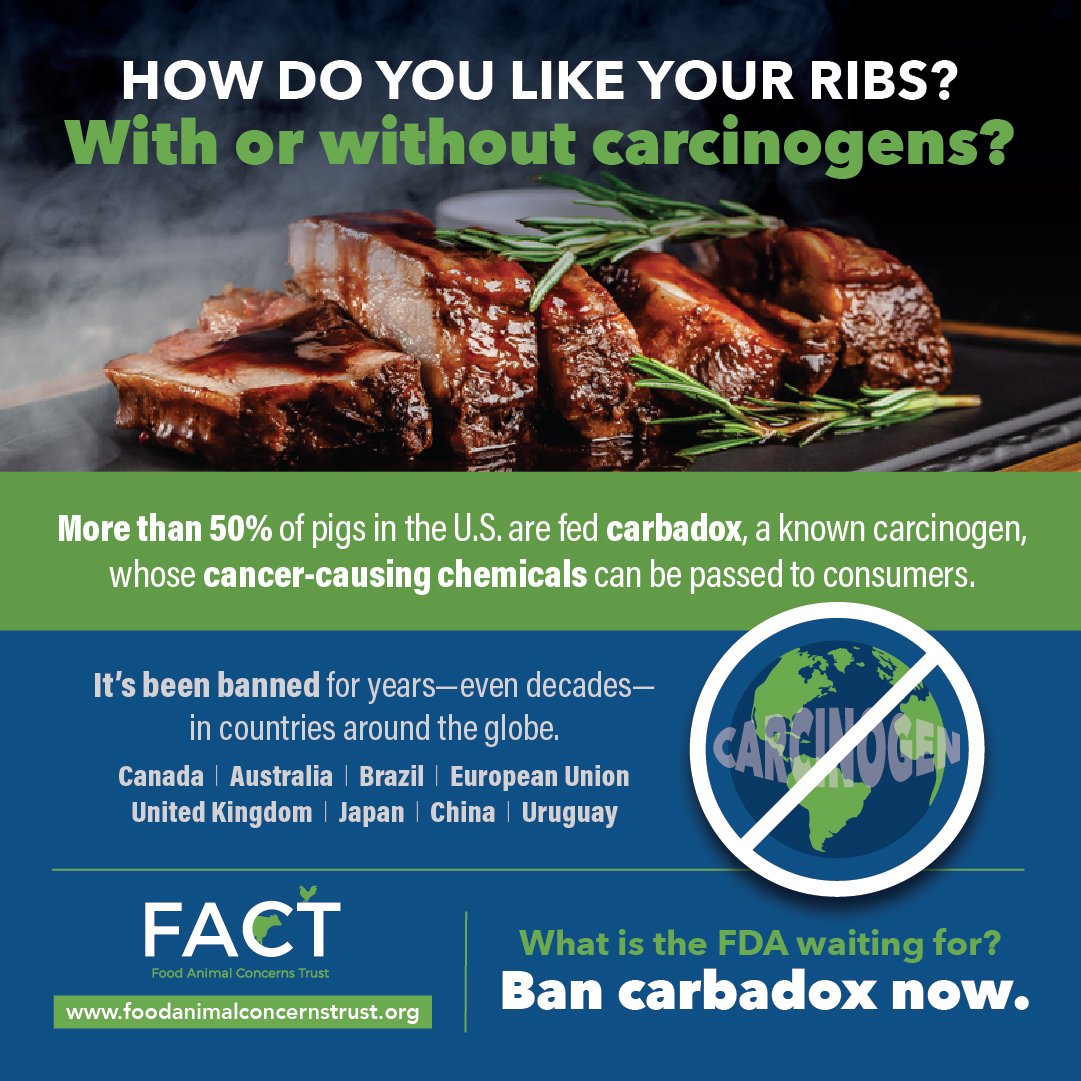Why Is FDA Still OK with a Food-borne Carcinogen?
Among the leading causes of death worldwide, there were 18.1 million new cases of cancer diagnosed in 2018. By 2040, that number is expected to rise to 29.5 million. Researchers are working overtime to identify and address the many causes of this devastating disease. One way to reduce cancer risk is to avoid exposure to carcinogens. That is why it is disturbing that over half the pigs in the U.S. are fed carbadox, a known carcinogen.
Find out more about carbadox in our video.
When pigs are fed carbadox, harmful residues end up in pork products, workers handling feed inhale its dust, and the carcinogen contaminates lakes and streams. Giant pig operations use it to promote growth and control gut infections in pigs, but it also promotes the growth of cancer in people who eat pork. The leading international body on the safety of chemicals in food, the United Nation’s Codex Committee on Residues of Veterinary Drugs in Foods—which is led by the U.S.—found that there is “no safe level of carbadox.” Any amount, they say, poses an unacceptable risk to consumers. These findings were adopted in 2014.
Responsible, sustainable farmers know that they can raise pigs and control gut infections in safer ways. In fact, pigs that are free from overcrowded pens, properly weaned from their mothers, and fed sound diets rarely need feed additives and never need carbadox. Humanely raising these animals results in healthier pigs and healthier people without the cancer risk that carbadox introduces.
The FDA itself acknowledges the carcinogenic properties of carbadox, yet over half a decade after recognizing its mistake in approving the drug, it still remains on the market. In short, the FDA has stalled the banning of carbadox for years despite knowing its dangers. Pushback from factory farms, lobbying from Big Pharma, and bureaucratic red tape are all contributing factors. Meanwhile, every day, millions of pigs raised for food in the U.S. receive this drug.
Canada, Brazil, the European Union, Australia, and the United Kingdom all banned the use of carbadox years—even decades—ago. The FDA, whose own mission statement declares that they are “responsible for protecting the public health,” has the scientific evidence, the precedent of several leading nations, and the power to protect the American people—so when will they? It’s time to demand that the FDA follow its public charge and demand a swift and comprehensive ban of carbadox.
In addition to the FDA, food companies like McDonalds and Tyson Foods could decide they do not want to feed a known carcinogen to their customers and demand that their pork suppliers stop using the drug. To rid our country of its harmful effects, we must all work together to take action now.
Follow this *link to sign our petition urging FDA to ban carbadox immediately and start protecting public health.
*This action is now closed, however, you may visit our action center for a list of active and ongoing campaigns.

